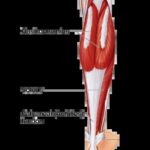Feeling like food is stuck in your throat can be a frightening and uncomfortable experience. This sensation, known as dysphagia, can range from a mild annoyance to a serious medical condition. Understanding its causes, symptoms, and potential complications is crucial for seeking appropriate treatment.
The esophagus, a muscular tube connecting your mouth and stomach, plays a vital role in swallowing. Muscles in the esophagus contract and relax to move food downward, and any disruption to this process can lead to dysphagia.
Understanding Dysphagia: Types and Causes
Dysphagia is broadly classified into two main types: esophageal and oropharyngeal.
Esophageal Dysphagia: Feeling Stuck in the Chest
Esophageal dysphagia describes the sensation of food getting lodged in the lower part of the throat or chest after you’ve started swallowing. Several conditions can contribute to this type of dysphagia:
- Achalasia: This condition impairs the esophagus’s ability to push food into the stomach due to nerve or muscle damage.
- Esophageal Spasm: Painful, uncoordinated contractions in the esophagus can disrupt the normal swallowing process.
- Esophageal Stricture: Narrowing of the esophagus, often caused by scar tissue or tumors, can obstruct the passage of food.
- Esophageal Tumors: As tumors grow, they can progressively block the esophagus, making swallowing increasingly difficult.
- Foreign Bodies: Food or other objects can sometimes become lodged in the esophagus, leading to dysphagia.
- Esophageal Ring: A thin narrowing in the lower esophagus can occasionally obstruct the passage of solid foods.
- GERD (Gastroesophageal Reflux Disease): Stomach acid reflux can damage the esophagus, leading to spasms, scarring, and narrowing.
- Eosinophilic Esophagitis: This immune system disorder involves the buildup of white blood cells in the esophagus, causing inflammation and difficulty swallowing.
- Scleroderma: This condition causes tissue hardening and stiffening, potentially weakening the esophageal sphincter and leading to acid reflux and dysphagia.
- Radiation Therapy: This cancer treatment can cause inflammation and scarring in the esophagus.
Oropharyngeal Dysphagia: Trouble Initiating Swallowing
Oropharyngeal dysphagia refers to difficulty moving food from the mouth to the throat and esophagus. This type of dysphagia often involves coughing, gagging, or choking while swallowing, or the sensation of food or liquids going down the windpipe or up the nose. Causes include:
- Neurological Disorders: Conditions like multiple sclerosis, muscular dystrophy, and Parkinson’s disease can affect the muscles involved in swallowing.
- Neurological Damage: Stroke or brain or spinal cord injuries can impair swallowing function.
- Zenker’s Diverticulum: A small pouch forming in the throat can collect food particles, leading to swallowing difficulties, gurgling sounds, and bad breath.
- Cancer: Certain cancers and cancer treatments like radiation can cause dysphagia.
Recognizing the Symptoms of Dysphagia
Dysphagia can manifest in various ways, including:
- Pain while swallowing (odynophagia)
- Inability to swallow
- Sensation of food stuck in the throat or chest
- Drooling
- Hoarseness
- Regurgitation (food coming back up)
- Frequent heartburn
- Food or stomach acid backing up into the throat
- Weight loss
- Coughing or gagging when swallowing
Risk Factors and Complications
While dysphagia can affect anyone, certain factors increase the risk:
- Aging: The natural aging process and age-related conditions like stroke increase the risk of dysphagia in older adults.
- Underlying Health Conditions: Neurological disorders and certain medical conditions predispose individuals to swallowing difficulties.
Untreated dysphagia can lead to serious complications:
- Malnutrition, Weight Loss, and Dehydration: Difficulty swallowing can make it challenging to consume enough calories and fluids.
- Aspiration Pneumonia: Food or liquid entering the airways can cause lung infections.
- Choking: Obstructed airways due to food can be life-threatening.
When to Seek Medical Attention
Occasional difficulty swallowing might not be a cause for concern. However, persistent or worsening dysphagia warrants medical evaluation. Consult a healthcare professional if you experience:
- Regular difficulty swallowing
- Weight loss associated with swallowing difficulties
- Regurgitation or vomiting with dysphagia
- Difficulty breathing due to a blockage (seek immediate emergency help)
Prevention and Management
While preventing all cases of dysphagia is impossible, some measures can reduce the risk:
- Eat Slowly and Chew Thoroughly: This helps prevent food from getting stuck.
- Manage GERD: Treating acid reflux can minimize esophageal damage.
- Seek Medical Attention for Persistent Symptoms: Early diagnosis and treatment are crucial for managing dysphagia effectively.
This information is intended for educational purposes only and should not be considered medical advice. Consult with a healthcare professional for diagnosis and treatment of any medical condition.
References:
- Fass R. Approach to the evaluation of dysphagia in adults.
- Ferri FF. Dysphagia. In: Ferri’s Clinical Advisor 2022.
- Dysphagia. National Institute on Deafness and Other Communication Disorders.
- Dysphagia. Merck Manual Professional Version.
- Lembo AJ. Oropharyngeal dysphagia: Clinical features, diagnosis, and management.
- Dysphagia. American College of Gastroenterology.
- Panebianco M., et al. Dysphagia in neurological diseases: A literature review. Neurological Sciences.
- Aging and swallowing. American Academy of Otolaryngology — Head and Neck Surgery.
- Triggs J, et al. Recent advances in dysphagia management. F1000Research.
- Ami TR. Allscripts EPSi. Mayo Clinic.

